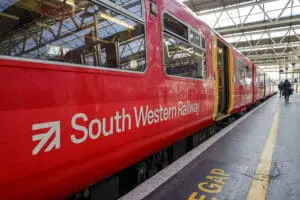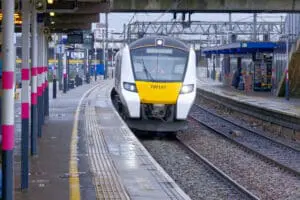Hidden online charges costing UK consumers £1.6bn each year
So-called ‘drip pricing’ on products ranging from train fares to food deliveries to be targeted in a Government crackdown.
New research published today has found ‘drip pricing’ – where the price paid at the checkout is higher than originally advertised due to unnecessary fees – is costing UK consumers a total of £1.6 billion each year.
The research, commissioned by the Prime Minister in June, found three quarters of transport providers are guilty of applying hidden charges to their products. More than half of entertainment and hospitality providers were also called out for sneaky hidden fees.
The research marks the launch of a new government consultation on improving price transparency and product information for consumers.
Kevin Hollinrake, Minister for Enterprise, Markets and Small Business, said:
‘Today’s measures will help people keep hold of their hard-earned cash and ensure they have the clearest and most accurate information up front before they make a purchase. From the shelves of supermarkets to digital trolleys, modern-day shopping provides a great wealth of choice. But fake reviews and hidden fees can make those choices increasingly confusing and leave consumers unsure about what product is right for them.’

Proposed new measures to help consumers as they shop
The government is asking for views on key measures aimed at improving the quality and accessibility of information for consumers, to help them make better shopping choices. These include measures to address confusing labelling, hidden fees and drip pricing, and fake and misleading information.
Sarah Cardell, CEO of the Competition and Markets Authority, said:
‘This consultation follows recommendations from the CMA to tighten rules on how everyday items are priced on supermarket shelves as well as our work on tackling fake reviews online. It’s an important step toward greater transparency for people when shopping around for goods and services.’
The competition regulator told supermarkets to make pricing clearer to help shoppers find the best deals earlier this year. Its investigation uncovered different measurements being used for similar products. For example, tea bags priced per 100 grams for some brands and per teabag for others making it impossible to compare like-for-like costs. The watchdog also found problems like difficult to read labels, or missing or wrong unit pricing information. For example, 250ml hand-wash costing £1.19 but unit priced at £476 per 100ml.
New proposals backed by Which?
Consumer group Which? has said the proposed measures will address longstanding concerns.
Rocio Concha, Which? Director of Policy and Advocacy, said:
‘Customers need clear pricing up front when considering a product or service and should not find themselves having to pay for charges that stay hidden until checkout, like mandatory booking fees. Supermarkets also need to make it easy to compare the unit price of everyday items to help consumers make informed choices.’
Two further consultations also launched will cover new actions to stop fake reviews and simplifying labelling on goods. The closing date for responding to the consultations is 15 October 2023.
Related claims

Amazon
Do you shop using Amazon’s marketplace at amazon.co.uk? You could be eligible for compensation. Sign up to stay updated.

South Western trains
South Western train companies are being sued for £57m for overcharging millions of rail passengers. Sign up to stay updated.

Govia Thameslink trains
Govia Thameslink Railway is being sued for £73.3m for overcharging 3.2m passengers. Sign up if you use Thameslink, Southern or Great Northern trains.


